Sporting KC’s Academy Technical Coach Michel Ribeiro on Youth Soccer
While the diverse landscape of player development may be littered with an abundance of trails in search of the holy grail of success, for a player to have real success, there must be an experienced leader involved.
The zenith of player development is the experienced technical coach, especially one with a proven track record.
The MLS Development Academy at Sporting Kansas City is highly respected and added Michel Ribeiro as Technical Coach in 2017. From Belgium, Ribeiro is a passionate and knowledgeable soccer expert who has already developed top talent into highly successful professionals — and now wants to turn his attention and talents to helping players in the USA.
What do Manchester City’s Kevin De Bruyne, Atlético Madrid’s Yannick Carrasco and Liverpool’s Divock Origi have in common?
They all trained under Technical Coach Michel Ribeiro.
Regardless of a player’s natural ability and passionate work ethic, the most important part of the journey for a talented young soccer player in search of reaching their potential and dreaming of becoming a professional — is the technical coach.
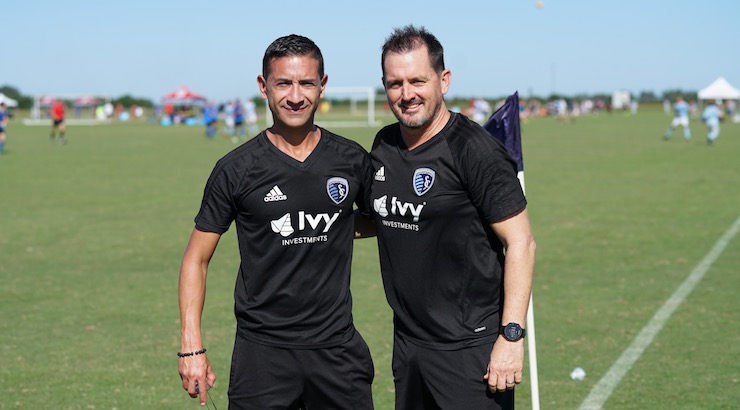
Last April, Ribero joined Sporting KC Academy as Technical Coach — leaving Koninklijke Racing Club Genk, the Belgian professional football club based in the city of Genk after 14 years. Looking for new challenges, Ribeiro has immersed himself in the world of American youth soccer.
“Michel works with youth soccer players on their technique, how they should receive the ball and how and when to dribble. We know that the technical ability of players in the USA does not match up with the kids in the world playing at the highest level,” said Sporting KC Academy Director Jon Parry. “We are very excited to have him here with us — and, we are really making a difference.”
SoccerToday’s Diane Scavuzzo interviewed Michel Ribeiro at the U.S. Soccer Development Academy Winter Showcase in Lakewood Ranch, Florida on the future of youth soccer in America, specifically on the differences between player development in the USA and in Europe.
Diane Scavuzzo: Welcome to the USA — What do American youth soccer players need to compete successfully on the world stage?
Michel Ribeiro: American youth soccer players are good — but, to be better against their rivals in Europe, they need to combine technique with speed.
High level DA players would not look out of place in Europe.
Diane Scavuzzo: What is your role as Technical Coach for Sporting Kansas City’s Development Academy?
Michel Ribeiro: My goal is to produce as many young kids to the first team – the Sporting KC MLS team.
We are building a little Europe in Kansas City – we are working on the little details and seeing immense improvement. We want our players at Sporting KC to do everything with higher intensity and higher speed.
We also help them improve with position specific training.
Diane Scavuzzo: So you are focused on the individual development of players and developing homegrown talent?
Michel Ribeiro: Yes, that is it a 100% accurate. At Sporting KC Academy, we are committed to producing kids for the first team like European clubs.
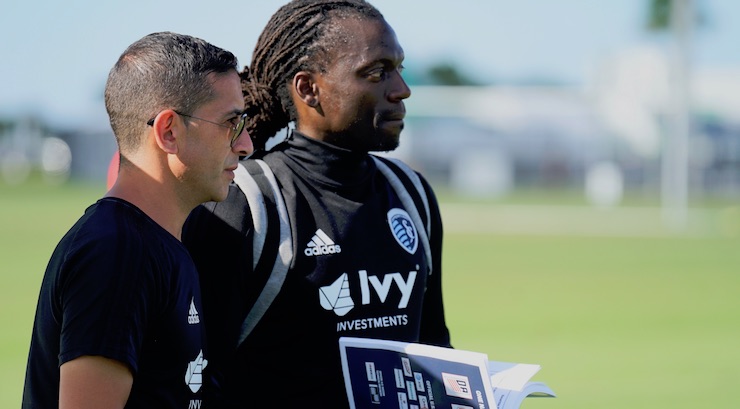
Diane Scavuzzo: What is wrong in American youth soccer?
Michel Ribeiro: In general, youth soccer coaches in the USA are too focused on winning.
First, it has to be good soccer and the goal has to be developing the players — that is the most important.
Winning is important but it should come by playing the right way.
A lot of time when I am watching even high-level youth games, I am disappointed by the coaches because it is always about winning. These coaches are looking at the DA standings too much.
Diane Scavuzzo: What is missing in America?
Michel Ribeiro: Good Academy youth soccer coaches
Diane Scavuzzo: What makes a coach good?
Michel Ribeiro: Putting development as the priority instead of one’s own ego.
Coaches need to put the development of their players first — ahead of their own desires to win or make a name for themselves.
A coach should let the kids go try to win the game playing good soccer — but too many times the coach is doing everything to win the game and allowing development of his players to take a second place.
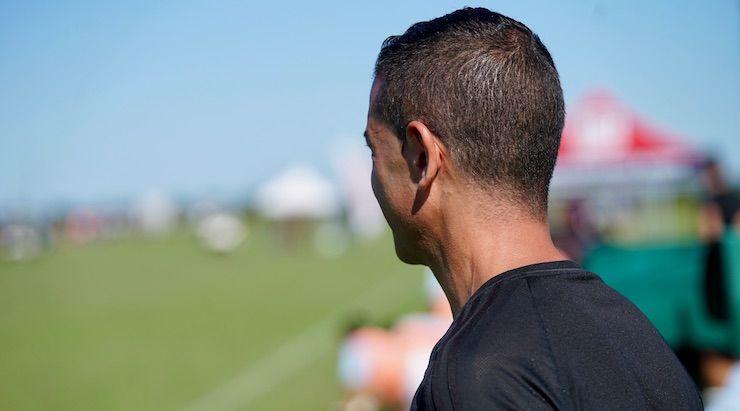
Diane Scavuzzo: So that is one of the biggest problems in youth soccer in America?
Michel Ribeiro: Yes — coaches who want to win and sacrifice the development of the players to win a match.
Diane Scavuzzo: The U.S. Soccer Development Academy wants clubs to focus on player development over winning ….
Michel Ribeiro: U.S. Soccer’s DA is trying to do it but there is still a long way to go. The decision makers in American youth soccer need to have an open discussion and listen to the clubs. There are good clubs in the USA — and we are the ones in the trenches, knowing what is going on every day on the pitch.
In Belgium, the first priority is to develop individuals instead of making good teams
You can have a good team that wins and doesn’t have top talent — but you can’t develop top players who will become professionals this way.
The only team that needs to win is the first team.
Diane Scavuzzo: Why has America taken so long to figure this out?
Michel Ribeiro: It takes time. America looks across the ocean and then tries to do the same — but Rome was not built in one day.
I think it can go faster — but everyone needs to pull the same way on the same rope.
How come a small country like Belgium can develop fantastic players? We are on the same page.
Diane Scavuzzo: What do you recommend?
Michel Ribeiro: A big improvement is to open up the borders so all Development Academies can take players from outside of the limitations of their regions.
It must be possible for the players and parents to pick offers from other teams. If the MLS doesn’t do this, it is a sign of weakness. In some areas, there are too many talented players and the rosters are already set. Particularly in those areas, parents should be free to choose the path of their own kids.
If you really believe in what you do, you will always recruit good players and the best players will chose your academy.
Don’t be afraid to lose talent, if you lose too much talent, maybe you need to look in the mirror and figure out what you are doing wrong.
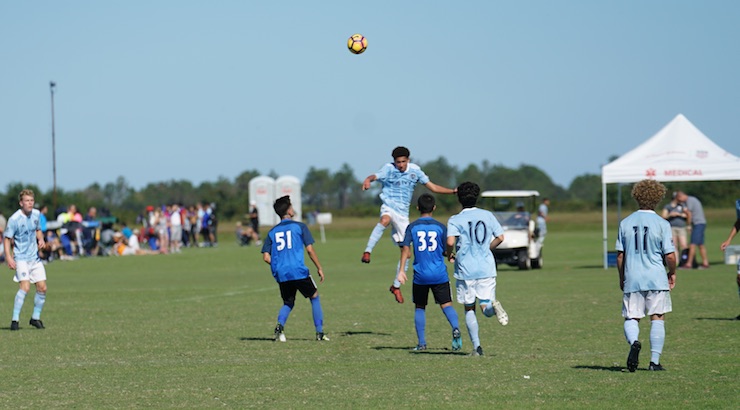
Diane Scavuzzo: How old were you when you started to play soccer?
Michel Ribeiro: I started playing soccer when I was 4 years old.
Diane Scavuzzo: What is one of the big differences between youth soccer in American and in Europe?
Michel Ribeiro: Youth soccer players are usually stronger in America but they are not fitter. And, the tempo of the soccer is much faster in Europe and we start to develop the kids when they are younger — at the ages of 6 and 7 years of age.
The DAs need to start recruiting kids when they are younger so they are able to develop the technical skills earlier — and then the speed of play can be faster.
Diane Scavuzzo: What are the greatest challenges for developing homegrown players in the USA?
Michel Ribeiro: Most parents are looking for college – the biggest difference in Europe is that when you turn 18, you are a man.
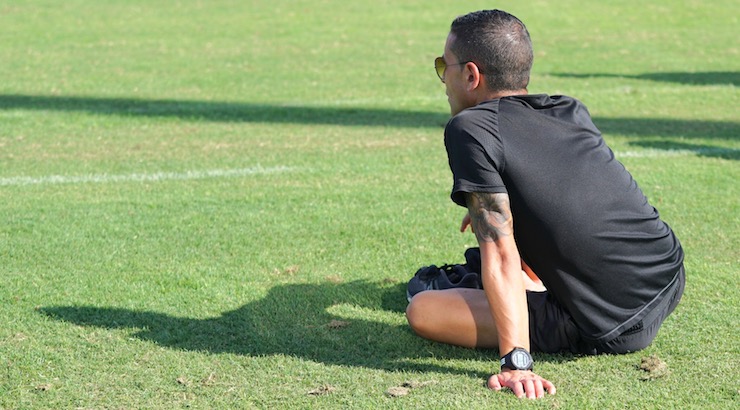
Diane Scavuzzo: College is important for a player’s future off the field ….
Michel Ribeiro: I understand college is very important, but the first thing everyone thinks about in Europe is becoming a professional player — not becoming a student-athlete.
College is a good plan b for the talented kids.The most talented players need to sign a pro contract.
Many MLS teams have ULS teams — and the USL is the perfect stepping stone — the Sporting KC USL team plays the same style as the academy.
Diane Scavuzzo: What do you think of the Boys’ DA Winter Showcase?
Michel Ribeiro: It is exciting to be here in the USA – the DA showcase is very well done. There is so much potential in this country.
I know what these kids need to be successful in their career. I am very detail oriented and I try to think outside of the box to try to develop great players. It is great to be in the USA, and to be working with Jon Parry and Peter Vermes.

Photo Credit: Diane Scavuzzo





